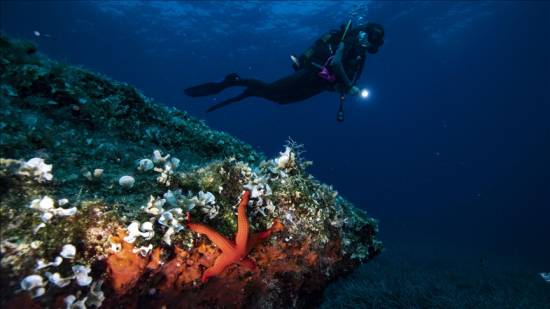
An estimated 14% of the coral reefs across the globe have been wiped out in less than a decade, according to a study released by the Global Coral Reef Monitoring Network (GCRMN) on Tuesday.
The report titled "Status of Coral Reefs of the World: 2020" documents the loss of the world's coral from 2009 to 2018 and is the largest analysis of global coral reef health as it draws on data spanning 40 years, in 73 countries, across 12,000 sites, and collected by over 300 scientists.
“Coral reefs across the world are under relentless stress from warming caused by climate change and other local pressures such as overfishing, unsustainable coastal development, and declining water quality,” it said. “An irrevocable loss of coral reefs would be catastrophic.”
According to the report, the reefs, despite covering merely 0.2% of the ocean floor, are "home to at least a quarter of all marine species, providing critical habitat and a fundamental source of protein, as well as life-saving medicines."
Hundreds of millions of human beings depend on the coral reefs for jobs, food, and protection from storms and erosions, it said.
Although the loss of coral reef might trigger significant outcomes, the report also pointed to a glimmer of hope as “it also found that many of the world’s coral reefs remain resilient and can recover if conditions allow, providing hope for the long-term health of coral reefs if immediate steps are taken to stabilize emissions to curb future warming.”
Climate change biggest threat
"A clear message from the study is that climate change is the biggest threat to the world’s reefs, and we must all do our part by urgently curbing global greenhouse gas emissions and mitigating local pressures," said Paul Hardisty, the CEO of the Australian Institute of Marine Science.
“There are clearly unsettling trends toward coral loss, and we can expect these to continue as warming persists,” he added. “Despite this, some reefs have shown a remarkable ability to bounce back, which offers hope for the future recovery of degraded reefs.”
Inger Andersen, executive director of the UN Environment Program (UNEP) that provided support to the report, said that the amount of coral lost worldwide since 2009 equaled more than all the living coral in Australia.
“We are running out of time. We can reverse losses, but we have to act now,” he added.
It was further noted in the report that reef algae – which grows during periods of stress – has increased by more than 20% over the past 10 years.
Almost invariably, sharp declines in coral cover corresponded with rapid increases in sea surface temperatures, indicating their vulnerability to spikes, which is a phenomenon that is likely to happen more frequently as the planet continues to warm, the report underlined./agencies


